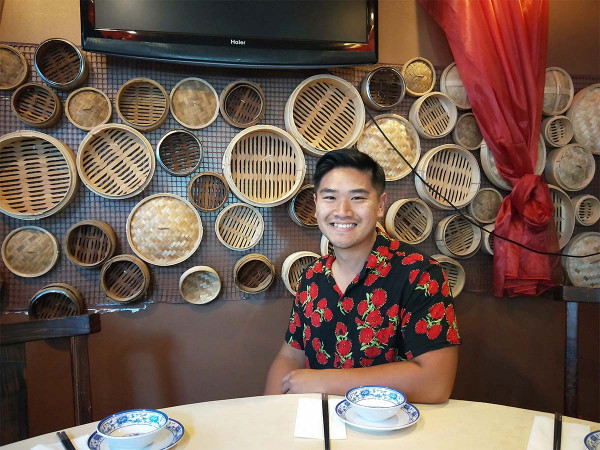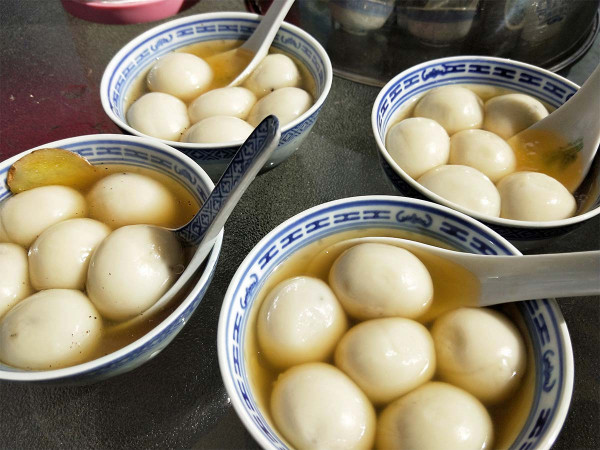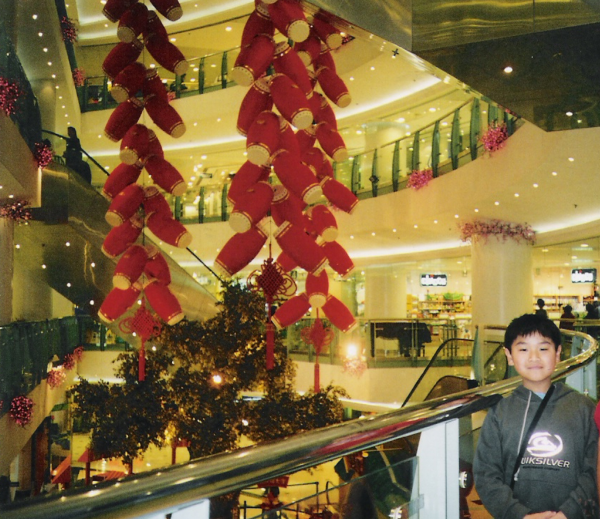By Sidney Wong
The Lunar New Year is going to be different now the Omicron variant is in the community, writes Sidney Wong.
Every Lunar New Year people across the globe would go home to reunite with their families.
This year I won’t be.
It sucks because I had already booked my flights from Ōtautahi to see my family in Te Awa Kairangi (Hutt Valley).
With Omicron in the country, I decided it wasn’t safe to travel so I won't be able to go home and celebrate with my family.

Although I’m sad that I won’t be able to celebrate with my family, I’ll be with my partner instead.
He doesn’t normally get a chance to see these traditions because we’re in a Queer relationship and he hasn’t yet been accepted by my parents.
But this year, I get to show him how I celebrate this festival that has been an important part of my life.
I’m Cantonese, so my family call this festival 農曆新年 /nung4lik6san1nin4/ 'the Agrarian New Year’, better known as Chinese New Year.
Chinese New Year has always been a special time for me. It’s a time for celebration, reflection and most important of all, it’s a time for family.
When I was growing up in suburban Te Whanganui-a-Tara, our Chinese New Year celebrations were always behind closed doors.
Unlike the events we see today, we never had large night noodle markets, lantern displays, or marketing gimmicks in the 90s or the early 2000s. It was invisible to the public.
My parents celebrated this festival to make sure that my brother and I felt connected with our Cantonese heritage. For them, it was creating a home away from home.
We would spend a lot of time at home preparing for the festivities. We made snacks, crafted decorations and we also did a lot of cleaning. So. Much. Cleaning.
One side of Chinese New Year you never see in public is the spiritual aspect of the festival.
My family are Taoist. Taoism is a belief system that combines philosophies from Confucianism, Buddhism, and Chinese folk traditions.
In the days leading up to Chinese New Year, we give thanks to our ancestors and deities by offering them savoury dishes and sweets at the altar.
We burn joss paper and incense sticks so it reaches the spirits in the afterlife.
This is how we connect with our ancestors and the deities who have kept us safe over the past year.
On Chinese New Year’s Eve our whole extended family would come together for a multi-course banquet.
We would then finish off the meal with 湯圓 /tong1jyun4-2/, which are little round soup dumplings served in a sweet and spicy ginger syrup.
These little white glutinous balls represent unity – something that every family, I think, should strive for.

On the morning of Chinese New Year, my brother and I would wake up and greet my parents with well-wishes.
My parents would give little decorative red and gold envelopes filled with money in return.
We’re meant to put them under our pillow to protect us for the following year, but my brother and I saw it as a competition - who could get the most and who would get the most pocket money.
There were also rules during Chinese New Year my mum would enforce with an iron fist.
My brother and I weren’t allowed to bicker or say negative things in the kitchen because we shouldn’t disturb our 灶神 /zou3san4/, our household deity, who will punish us for being naughty.
We also had to hide away cleaning equipment in case we blew away our good fortune.

This is only a small snapshot of what it was like to celebrate Chinese New Year in Aotearoa.
I’m excited to share the joy I experienced as a kid to my partner and my chosen family in Ōtautahi (Christchurch).
I’ve even organised a small 團年飯 /tun4nin4faan6/ (reunion dinner) for us to get together.
My partner, who is English, has never celebrated Chinese New Year before but he’s already on board with helping me clean and decorate the flat with lanterns, fairy lights and a sea of gold and red.
One good thing that came out of this situation is that I get to introduce my partner to this important aspect of my Cantonese identity.
This year we’ll create our home away from home.
Like many Queer people in Aotearoa, especially for those from traditional communities, there’s still a long road ahead before my family truly accepts my relationship as we reconcile my culture with my Queer identity.
But until then, a new year brings new opportunities.
I hope one day he’ll finally get the chance to meet my family and we can have 團年飯 /tun4nin4faan6/ together.
Sidney Gig-Jan Wong (27 years old, Ōtautahi) is unapologetically proud of his Queer and Cantonese heritage. Born in Te Awa Kairangi (Hutt Valley) and living with his partner in Ōtautahi (Christchurch). He is studying towards a PhD in Linguistics at the University of Canterbury.
More stories:
Aotearoa ranked least corrupt country in the world
Soundsplash worker says 'only a handful' of vendors wearing masks
Students left waiting as Aotearoa NZ histories curriculum delayed